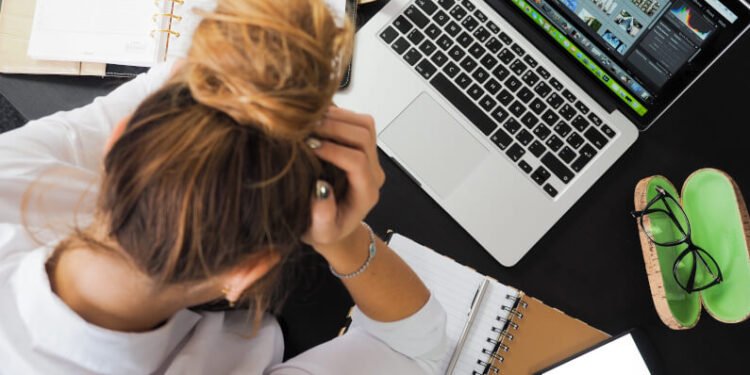Vacations are meant to be relaxing and rejuvenating but can also have negative consequences. Unfortunately, some people have post-vacation depression (PVD) after returning home. Traveling brings on PVD, similar to chronic depression, except that it is caused explicitly by traveling rather than other factors such as work, family issues, or personal problems. If you’ve ever had PVD after taking a trip or suspect that your loved one may be suffering from this condition, here’s what you need to know about recognizing the signs and treating them effectively so your next trip will be better than ever before!
Symptoms of post-vacation depression
If you are experiencing symptoms of post-vacation depression, it’s essential to recognize them as quickly as possible. The longer you delay seeking assistance, the more challenging it becomes to conquer your emotions of grief and melancholy. You can treat post-vacation depression with therapy or medication; however, self-care techniques such as exercise and meditation can also help ease symptoms while waiting for an appointment with a mental health professional.
Post-vacation depression is a natural phenomenon experienced by many people. Losing motivation or interest in once enjoyable activities (e.g., hobbies) characterizes it. Additionally, individuals may feel the need to do more with their life, despite having achieved specific accomplishments before the vacation. They may also feel like things always seem like they need to be better, no matter how hard they try (even though others say otherwise). Furthermore, they may believe nothing will compensate for the joys lost during vacation time. These beliefs may lead some people to think they deserve less happiness than others who didn’t experience such sadness during their absence from work/school/home life.
How to recognize and cure post-vacation depression
When you return from your vacation, you may feel slightly sad. It is normal, and it’s called post-vacation depression. You may still feel your vacation’s effects even after it’s over!
Here are some things you can do:
- Use your time wisely while on vacation. Don’t waste any time at all! Make sure you fill every day with fun activities or experiences that will help shape who you are (and give insight into what kind of job is right for you).
- Take notes about what worked well during this trip–what did others enjoy doing? How did they spend their days off? Did anything specific catch your attention as being particularly unforgettable? These notes will come in handy later when planning future vacations because now we know more about where our friends’ interests lie than before. This way, we will save precious time searching blindly through websites to find something exciting but affordable enough within budget constraints.
Make changes before your vacation.
If you are going on a vacation, you must organize your work and everyday life before the trip. It will help you relax and enjoy yourself during your time off. Here are some tips:
- Plan your vacation by scheduling time off from work. Avoid making significant decisions before leaving town (for example, not buying a house). The last thing anyone wants is their phone ringing while trying to enjoy themselves at the beach!
- Make plans for what you will do during your vacation–and stick with them! It will give structure and predictability to each day or night out on the town. Otherwise, too much freedom might be available, leading someone down dangerous paths such as drinking too much alcohol or overeating unhealthy foods like french fries from McDonald’s (I still need to get started on those things).
Learn from your vacation.
You can use the time you spend on vacation as a learning experience to help you make better decisions in the future. If you went on a tropical island getaway and got sunburned because you were too busy working on your tan to apply sunscreen, you can take some preventive measures for the next time:
- Make sure to pack sunscreen and use it regularly.
- Be more mindful of your time in direct sunlight and take breaks in the shade.
- Consider wearing a hat and protective clothing, especially during the hottest hours of the day.
Put yourself in the right mindset for pleasure after work
Allocate some time to unwind and alleviate stress, even if it’s only for a brief period. It can mean anything from taking a bath or going for a walk around the block to meditating or listening to music–whatever helps you slow down and unwind is good!
It will give you something to look forward to and help combat post-vacation blues. We all have different preferences when it comes to holidays: some people prefer spending time with family, while others like solo travel; some enjoy relaxing on beaches while others like exploring new cities; some would instead go hiking than skiing. But whatever type of trip appeals most strongly will help determine where exactly we should go next time we need an escape from our daily routine. Try new things while on vacation so as not only to broaden your horizons but also to keep your mind engaged during downtime.
Remember your friends back home. They will appreciate knowing that you still think about them, even when you’re away on vacation. Although there may be times when plans don’t align perfectly due to circumstances outside anyone’s control, such as bad weather conditions, friends who care about each other always try again later if possible. That’s because being together mattered most!
Conclusion
Post-vacation depression is a natural phenomenon that you can treat. If you’re feeling low post-vacation, contact someone who cares and discuss your emotions with them. If our Traveling Sapiens friends are to be trusted – take another trip!
Also, Read GPU Cloud Servers- A Significant shift in Technology.



